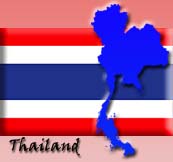Phuket's Chinatown on the road to gentrification
 Phuket, Thailand - Before tourism, Phuket Island was renowned for its tin-mining which lured Chinese migrants to its shores in search of fortunes the way western tourists now come in search of sunshine.
Phuket, Thailand - Before tourism, Phuket Island was renowned for its tin-mining which lured Chinese migrants to its shores in search of fortunes the way western tourists now come in search of sunshine.
Phuket was one of the last stops on the Malacca Straits route to riches for the shiploads of Chinese who flocked to South-East Asia over the past 400 years, most of them Hokkien from southern Fukian.
"If you made it rich in Malacca or Penang, no problem, but if not you would spin the coin and heads, go to Phuket, tails go to Aceh, Indonesia," said Pranee Sakulpipatana, Phuket historian and lecturer at Phuket Rajabhat University.
A handful of the Chinese migrants who ended up in Phuket became very rich indeed, primarily off tin-mining, an industry that turned the island into one of Thailand's most prosperous provinces.
"The dream for rich Chinese migrants back then was to have a European-style house, eat Chinese food and marry a Japanese wife," Pranee joked.
Phuket's tin barons, most of them hailing from the Tan clan, did not marry Japanese but they did build beautiful "Sino-Colonial" mansions in Phuket town, not on some beach-front property as the island's millionaires do today.
One of the most magnificent of those mansions, the house of Phra Pitak Chinpracha (whose Chinese name was Tan Ma-siang), was recently rented out to the Blue Elephant restaurant chain on a 30-year-lease basis and will be open to the public by November, if reconstruction goes as planned.
The century-old 20-room mansion, built in Phuket's old Chinatown, has been vacant for decades and was in considerable disrepair.
Blue Elephant, a posh Thai restaurant chain established in London in 1986 which now has outlets in Paris, Copenhagen, Lyon, Dubai, Kuwait, Bahrain, Malta, Beirut, Moscow, Jakarta and Bangkok, has allocated 70 million baht (2 million dollars) to renovate the mansion and add a cooking school area in the back.
"Basically, we are renovating the house by keeping as much of the original features as possible, but we need to bring it into the 21st century in terms of facilities," Blue Elephant vice president Thaviseuth Phouthavong said.
The massive renovation project has come as a godsend for various groups trying to turn Phuket's slowly gentrifying Chinatown in to a bigger tourist attraction.
"We need is something like the Blue Elephant to kick this thing off," said Ken Brookes, managing director of the Serendipity Design Company, which has been putting out a walking-tour map of Phuket for the past four years.
Gentrification has come piecemeal to Phuket town, without as much government support as seen in similar efforts to preserve the Chinatowns of Singapore and Penang.
"In Thailand there is no iron fist to do that, so people do it (gentrify) because of their feelings and out of love," Pranee said.
To be fair, the Phuket municipality made a considerable contribution to the beautification of parts of Chinatown six months ago by putting all the telephone and electricity wires underground, removing numerous hazards for walking tours.
One of the first areas to be gentrified in Phuket was Romanee lane, now the site of several posh coffee shops, offices and bars. Ironically, the lane was the red light district when Chinatown was still Phuket's entertainment hub decades ago.
"We would like to see authorities close the streets to traffic and maybe bring back the rickshaws," Brookes said.
Besides fine samples of Sino-Colonial architecture, and several Chinese temples, the old Chinatown already boasts several nice restaurants such as the China Inn, which offers food but not rooms, despite the name.
King of Sweden Carl XVI Gustaf celebrated the 30th anniversary of his marriage to Queen Silvia in this cosy little establishment several years ago.
Other eateries worth checking out include the Raya and Vilai's (the latter specializes in Hokkien dishes.)
The opening of the Blue Elephant by year-end should add to the culinary attractions, especially when it opens its famous cooking school.
"Visitors to Phuket as well as local people will be our potential customers," Thaviseuth said. "We will also take group events such as weddings, seminars, products launching etc."
A few local tour companies are already specializing in Chinatown tours for tourists bored of the beach.
"I handle about three or four tours to Chinatown a week," said Mark Breit, manager of Laguna Tours. "European tourists tend to be the ones most interested in history," he added.
For places to stay in Phuket's Chinatown, the three-storey Thalong Guesthouse is worth checking out but for real Chinatown ambience one should stay at the On On Hotel.
One major obstacle to luring more tourists to Chinatown is Phuket's taxi fleet, a cartel of sorts that is charging the most expensive fares in Thailand. (dpa)